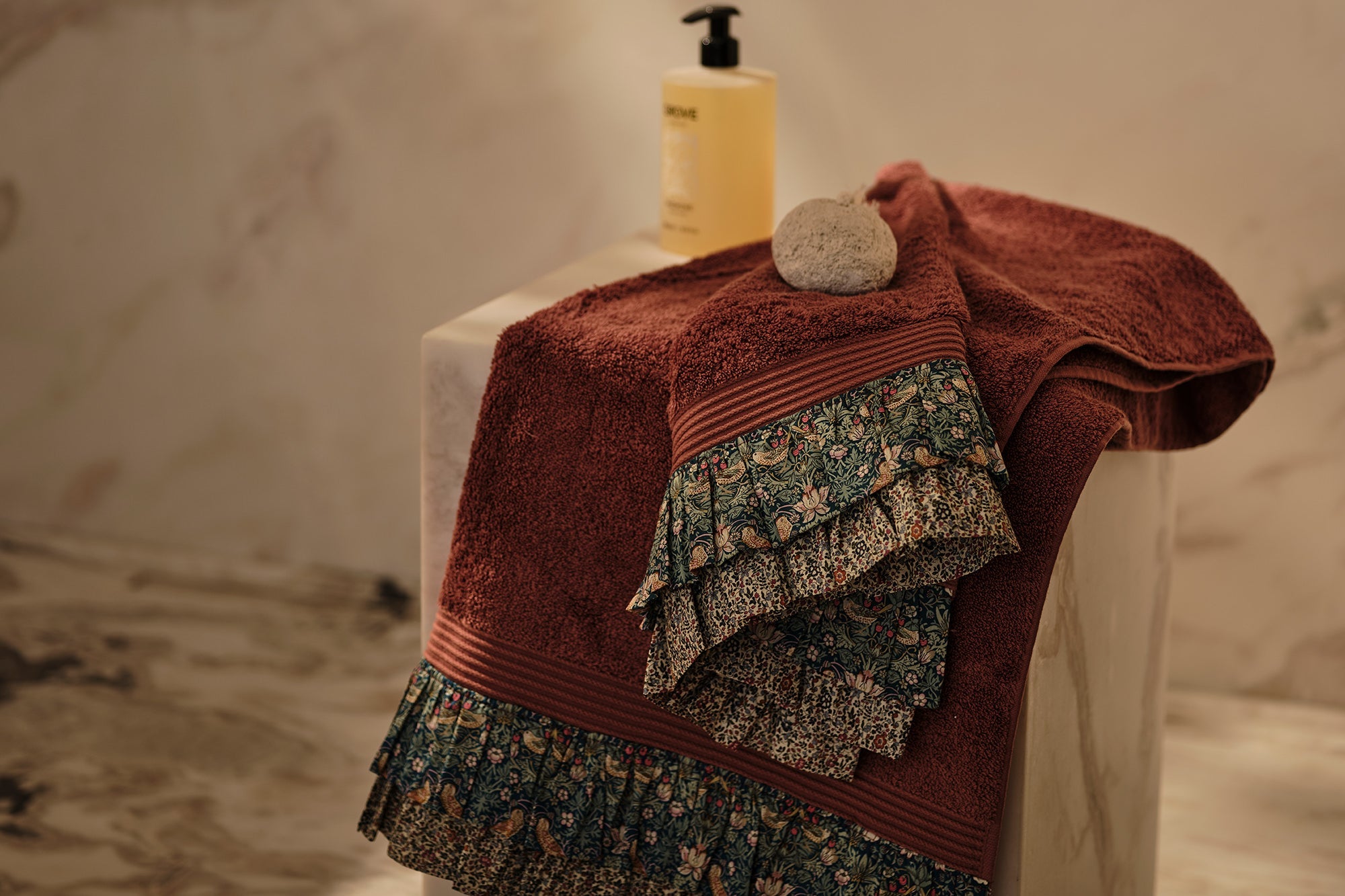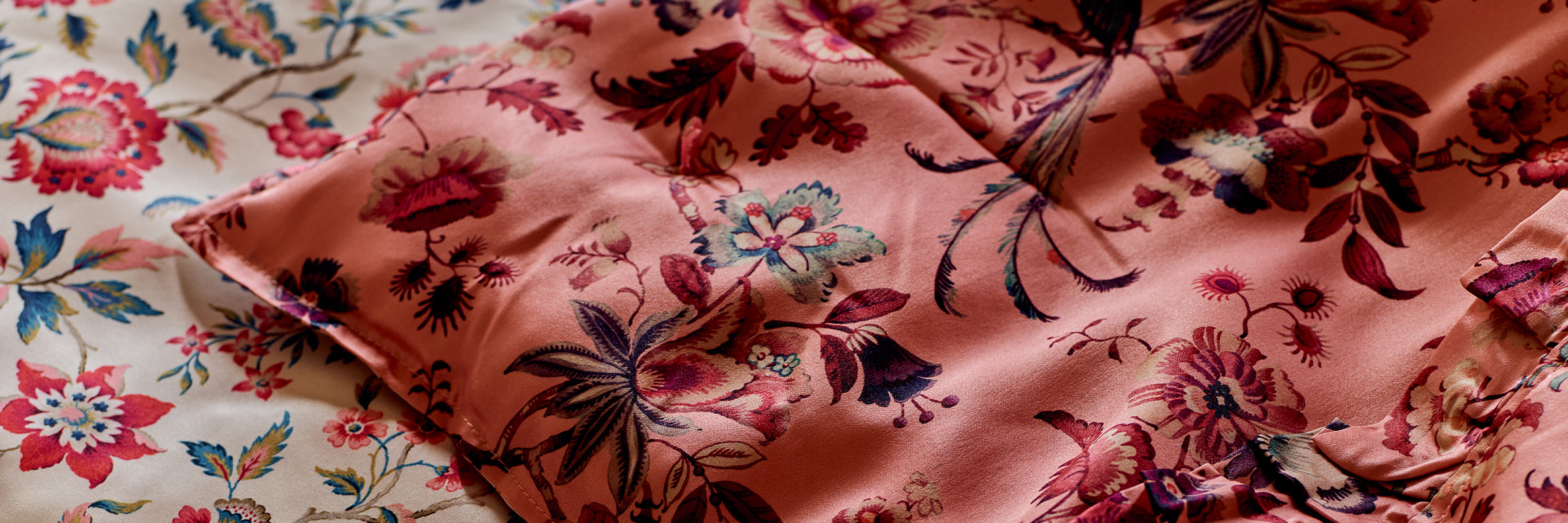While it’s never a subject far from any of our mind’s, this week’s unparalleled heatwave has inevitably encouraged the conversation around our impact on the ever-warming planet. The tangible effect is impossible to deny and sustainable living should be at the forefront of all of our minds. When assessing our own eco endeavours many of us will wish we were doing more, and while our six steps towards sustainable living may seem small, these easy to adopt green habits could have a big impact if adopted en masse. So we’re not about to tell you to sell your car and go electric (although that would be wonderful!) but we are going to share some simple changes you could make in your life which will hopefully encourage you to adapt more and more over the coming weeks and months.
AVOID OVERWASHING
Your energy and water use will thank you for considering whether you’re overwashing your clothes. Natural fibres such as linen, cotton and silk need less washing as they don’t hold on to stains and smells so do a sniff test before adding to the washing basket. And when it comes to drying, it’s time to ditch the tumble dryer. We’re already spoken about the benefits of air drying when it comes to caring for your Liberty fabric bedding and the same applies to clothes. The amount of carbon dioxide emitted from just one tumble dryer a year is more than a tree in the UK can absorb over the course of the first 50 years of its life - pretty shocking, hey? So while the weather is dry and blowy peg out your washing and in the colder months a rack in the warmest room of the house is the next best thing.
ECOFRIENDLY LUNCHES
The days of single use plastic in lunchboxes are numbered if we have any say in it. Sweaty sandwiches wrapped in clingfilm are not only less appealing but don’t do anything for your green credentials. Reuseable bags and beeswax wraps are fantastic for keeping your lunch ingredients fresh and children will love fun little reusable pots. Perfect Picnics need be no different. Keep salads in glass jars, baked goods can stay in their tins rather than being decanted and cheese is brilliant in beeswax.
PROTECT POLLINATORS
As we shift towards a more sustainable diet, with less meat and more plant based eating, the role of pollinators becomes more and more important. Without them our diets would be dull and less nutritious and our countryside far less bountiful and beautiful. Making your garden friendly to bees, butterflies and hover flies is one of the best things you can do on a personal level to boost the pollinator population. Create a pesticide free habitat with in flower blooms from spring through to autumn. Growing flowers rich in pollen and nectar will mean your garden is abuzz in no time, while positioning a bee hotel in full sun will boost bee diversity.

HAIRCARE RECONSIDERED
In the UK we throw away 520 million bottles of shampoo each year. This staggering fact almost certainly has to be food for thought. As someone with almost waist-length locks I have to say, I was resistant to trying anything other than my favourite bottles of luxury shampoos, but I needn’t have been. Shampoo bars have come a long, long way in the last couple of years and they are not only far kinder to the planet (the main aim, of course!), but they also provide a great hair washing experience. My favourites are Aveda’s Shampure Nurturing Shampoo Bar and the Honey I Washed My Hair Shampoo Bar by Lush which both lather up luxuriously, get my hair squeaky clean and super shiny and last longer than your average bottle of shampoo, all while making sure I’m not a part of that huge number of plastic bottles added to landfill each year.
WASTE NOT WANT NOT
Most of us are already on board with buying locally grown, seasonal produce where we can, but with an estimated one third of all the foods produced in the world going to waste we need to further change our habits, and quickly. Fruit is one of the world’s most wasted foods, and by throwing it away we are not only wasting the energy and water taken to grow, harvest, transport and package it, we’re also adding to landfill and creating greenhouse gases. Try and plan ahead and only buy what you need, of course, but if you are considering throwing fruit away consider being creative instead (and definitely forget about use by dates!). Fruit left languishing in the fruit bowl, a little bruised, is perfect for chopping up, freezing and using in smoothies. Overripe bananas peeled, frozen and then blended make excellent natural ice cream (my children love it whizzed with a dollop of peanut butter). A rogue piece of watermelon or half a nectarine left by the children is delicious in a savoury salad and overripe berries still make perfect jam!
BUY LESS, BUY BETTER
At Coco & Wolf we like to think we create heirloom products which will last a lifetime and then some and we believe this ethos could be adopted by more of the brands you know and love. Instead of shopping for low-value, throwaway goods, we encourage you to invest in high quality items you know you will love for years to come. And if you do fall out of love with something consider how it can have a second life - swapping with friends and family or donating to charity are great starting points and by doing this you are reducing emissions from production and disposal.
You may already be doing some, or even all of these steps which is amazing - we would love to hear what other steps you’re taking to improve your footprint. Sharing these steps however could help them reach someone who isn’t already doing them, which will have nothing but a positive effect on the current crisis, so we would really appreciate any sharing you can do.



















Leave a comment